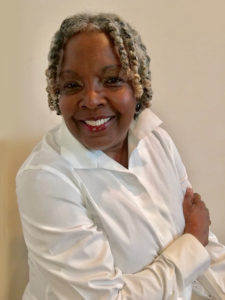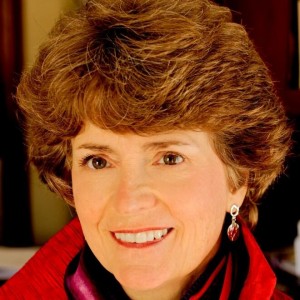Susan B. Anthony—still controversial after all these years
“To find inspiration in an historical figure is a complex task. In a sense, we create a phantom person for our modern purposes out of the odd bits of her life that we value. We craft a memory that connects us across time to a person or events, trying to be true to both spheres—our world and hers. It’s an exercise that works best when our imaginations are informed by solid historical information.”
Ann D. Gordon
Research Professor Emeritus, Rutgers University
One of the important roles of the Anthony Museum is to be a resource for those seeking historical information about Susan B. Anthony’s life and work. We received many inquiries about her position in regard to abortion when Anthony was featured in a skit on Saturday Night Live! Because the set of the NBC skit included a remarkable likeness of the front parlor of 17 Madison Street AND named the Susan B. Anthony House, audiences assumed that we had been consulted on the contents. Actually, we had no idea that this skit was in the works. (If you would like to read more about our interpretation of Susan B. Anthony on issues of reproductive freedom, read Misrepresenting Susan B. Anthony on Abortion.)
The morning after the 2016 Election, the L.A. Times published an article about the crowds that had gathered at Susan B. Anthony’s grave. The article introduced the question of racism in the suffrage movement, asserting that Anthony’s movement “fought for the voting rights of white women, excluding African Americans.” To support their argument, they included a “quote” attributed to Anthony. Unfortunately, it is a misquote that is repeated all over the Internet and through social media.
Susan B. Anthony did say something similar, but the correct wording and the context are critically important to our understanding.
Before the U.S. Civil War, Anthony was an activist with the American Anti-Slavery Society. Like Frederick Douglass, Anthony believed in a union where all citizens must have the right to vote. During the war, she and others organized the Women’s Loyal National League, which was the first women’s political organization to advocate for eliminating slavery by an amendment to the U.S. Constitution. They gathered more than 300,000 signatures on petitions for an amendment—a detail that was left out of the recent movie, Lincoln.
Following emancipation, they anticipated taking up the cause of voting rights for all. They founded the American Equal Rights Association in 1866, whose purpose was “to secure Equal Rights to all American citizens, especially the right of suffrage, irrespective of race, color or sex.”
Imagine Anthony’s indignation when she and Elizabeth Cady Stanton were privately approached by Wendell Phillips and Theodore Tilton to suspend work for universal suffrage, to concentrate on getting the vote for men of color only. Anthony’s biographer, Ida Husted Harper reports that Anthony responded that “she would sooner cut off her right arm before she would ever work for or demand the ballot for the black man and not the woman.” It was a betrayal to Susan B. Anthony to be asked to compromise on the issue of universal suffrage.
Shortly after this, Anthony and Frederick Douglass divided over the issue. Douglass believed that it was a matter of life and death to grant emancipated men the right to vote. Out of this disagreement has grown the perception that Anthony chose white women over all people of color, which is a misrepresentation. We only need to look at her words, “It is not a question of precedence between women & black men. Neither has a claim to precedence upon an Equal Rights platform. But the business of this association is to demand for every man black or white, & for every woman, black or white, that they shall be this instant enfranchised & admitted into the body politic with equal rights & privileges.”
There were certainly moments in the woman’s suffrage movement when the actions and words of the leaders betrayed their own racism and bigotry. At the Anthony Museum, we want to confront the ways in which Susan B. Anthony has been used to perpetuate racism, both in her time, and in ours. We want to recognize the ways in which the Anthony Museum might also be reinforcing bias and racism. We are energized by her challenge, “I want a union in fact, not a sham.”
Interpreting Susan B. Anthony’s life and work is as challenging as it has ever been, because Susan B. Anthony is as relevant today as she has ever been.

 This past year has been one of triumph and challenge. In so many ways, Susan B. Anthony’s life and work seem more relevant than ever as we head into 2016.
This past year has been one of triumph and challenge. In so many ways, Susan B. Anthony’s life and work seem more relevant than ever as we head into 2016.